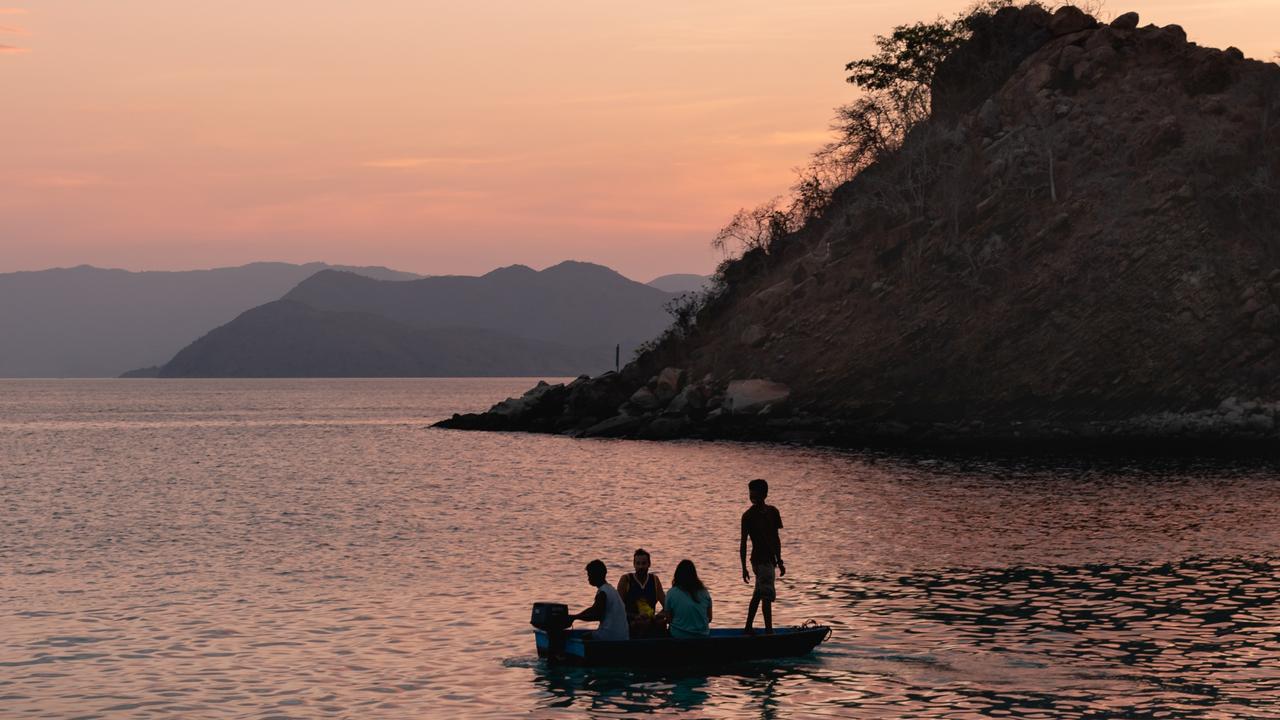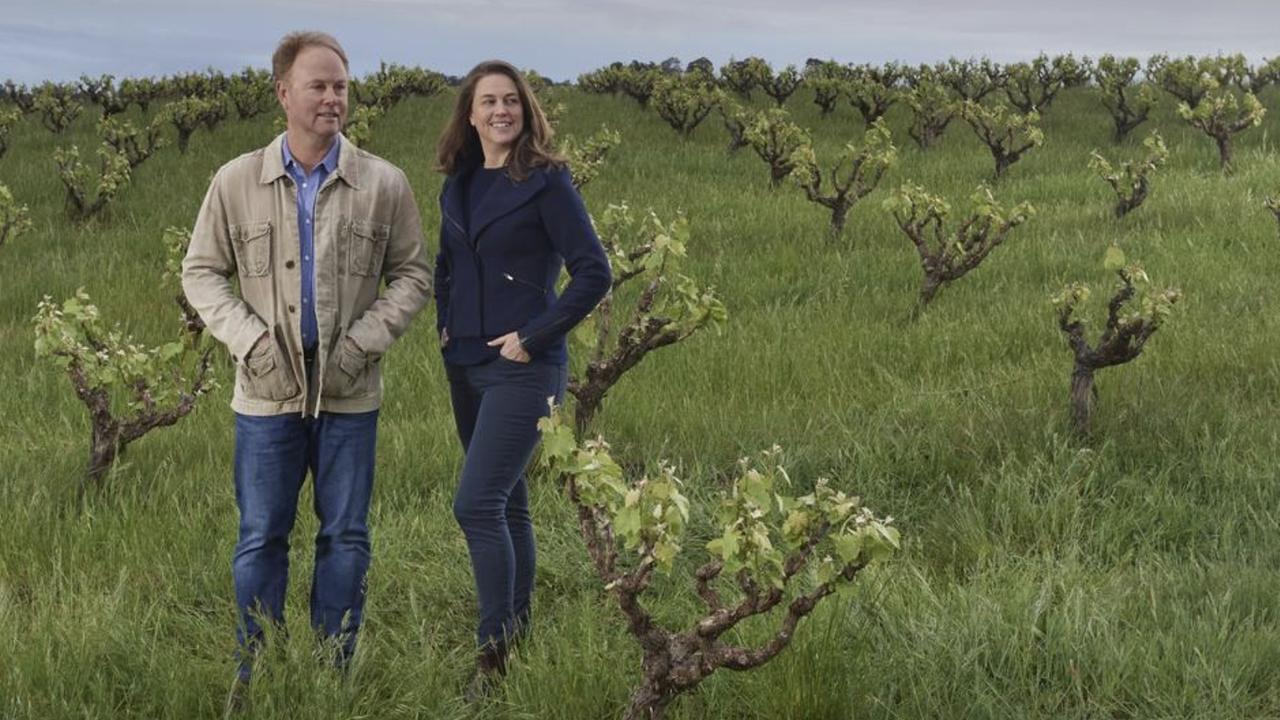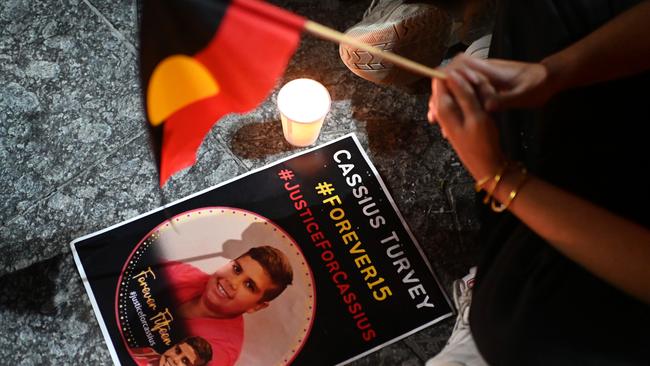
Is the killing of Perth teen Cassius Turvey our nation’s Stephen Lawrence moment? Stephen, a black teenager, was slain at a London bus stop almost 30 years ago in a senseless act which forced a reckoning over race in his country. It was a sobering, watershed moment that has reverberated in the UK for years, decades. Everyone over a certain age there knows the name Stephen Lawrence. Will everyone in Australia know Cassius Turvey’s?
I hope so, for his sake, and for our nation’s. Because in terms of Australia’s complex history of racism and violence in relation to our traditional owners, we still have a long way to go. Cassius’s death shocks us once again into a reckoning of where we are as a country of white colonisers who declared this island for themselves, regardless of the indigenous people already there.
In the years following Stephen Lawrence’s death the detail of the protracted legal to and fro has blurred, but the horror over his randomly brutal murder remains. This was Britain then, a snapshot of a certain time and attitude towards black people. Stephen was a much-loved 18-year-old, the son of Jamaican immigrants, who had hopes of becoming an architect. He was attacked by a group of white youths while quietly waiting for a bus with a mate. He died from stab wounds. It was an unprovoked, racially motivated crime that resulted in far-reaching changes to attitudes towards police practice and the law. The bewildering unfairness of it all is what you remember the most; the senseless, thoughtless, destructive racism.
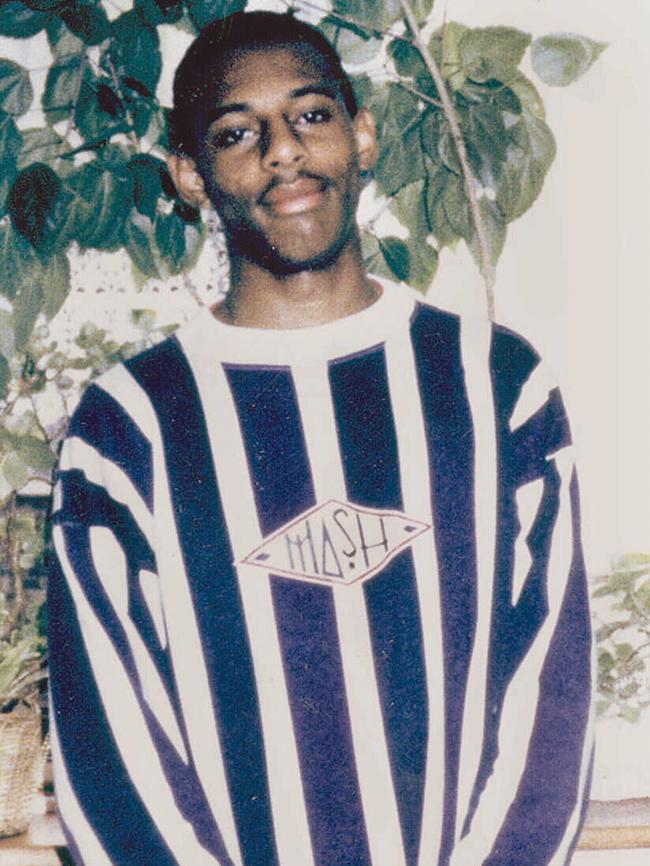
And now, here, a Noongar teenager has died after being allegedly bashed with a metal pole. Fifteen-year-old Cassius ran a “pay what you can” gardening service and was much loved in his community for helping kids with their homework. In photos, you can see the kindness in his face. He was chased down, while wearing his school uniform, after getting off his school bus with a group of mates. The man charged with the crime is also accused of bashing a 13-year-old boy on crutches, just before Cassius was attacked.
You would hope, expect, an upward curve over the years in this country in terms of race relations involving Aboriginal people. Yet Indigenous broadcaster Tony Armstrong recently told Network 10’s The Project that the tragedy isn’t “Hollywood enough” for the public to give it the attention it deserves. “Deaths in custody have gone up since Black Lives Matter happened. There’s never action, there’s only talk – and ultimately, we don’t want to talk about how this is a racial incident.” Prime Minister Anthony Albanese, though, didn’t shy away from this issue: “This attack that, clearly, is racially motivated, just breaks your heart. We are a better country than that.”
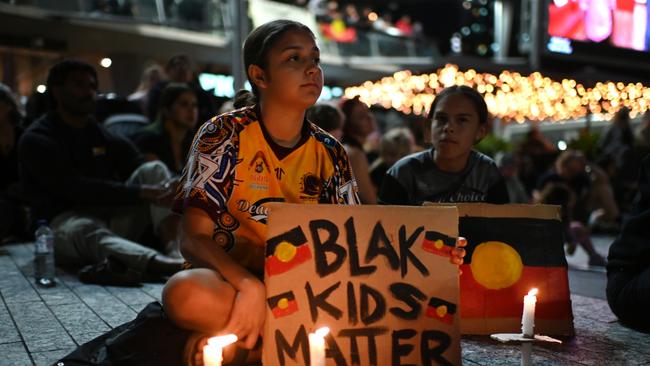
Stephen Lawrence’s mother, Doreen, was instrumental over years of campaigning in securing justice for her son. She wanted her beloved boy seen, and known, beyond the fallacy of reductive racial stereotypes. Cassius’s mother, Mechelle Turvey, has paid tribute to her son with eloquent grace, while calling for justice in the wake of his death. She has spoken of the fact that he was named after Cassius Clay, the great boxer, and of his standing within the community: “He was such a leader. I wish my son [too] recognised that he was such a leader… we need to give that empowerment and for them to recognise that they’re leaders [who] even in the smallest, different ways, can make a difference.”
Noongar elder Jim Morrison said parents in his community are all holding their children tighter in the wake of the loss. “When a tragedy like this happens it’s worse than ripples in the pond. It resonates to such a degree that it triggers the traumas of incidents of our history.”
The Stephen Lawrence case, and the official bungling and racism that surrounded it, eventually led to an overhaul of Britain’s race relations legislation, giving the nation the strongest anti-discrimination powers in Western Europe. Jack Straw, a politican involved in the case, said it led to “deep-seated cultural change”. I hope that the killing of a lovely 15-year-old Noongar boy will ultimately mean something in our nation’s history. Cassius Turvey. Know his name. All of us.


